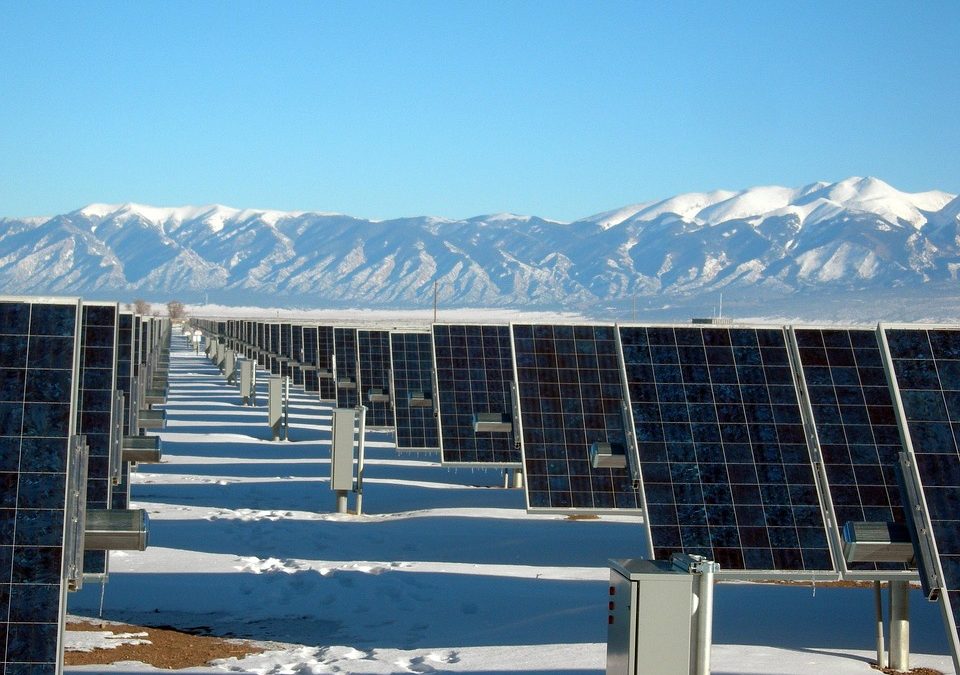Solar Power: Is it Worth It?

You have to admit, solar power is pretty darn fascinating. I remember discovering its marvels through a solar-powered calculator as a kid. Put your finger over the panel and the numbers disappear. Remove your finger and the digits magically reappear! Although plants have been converting the sun’s rays into energy since the beginning of time, we humans are still in the process of figuring it all out. As solar power technology improves, costs decrease; but is installing a solar panel system on your home really worth it? Let’s take a look!
Potential Deal Breakers
Don’t get your heart set on solar power until you review the possible roadblocks that may disqualify your home:
- Historic Landmark Status – If your home is situated in a historic landmark district, you’ll need to get approval from Landmark Preservation staff.
- Code – Read up on zoning and building codes to make sure your desired configuration is in compliance.
Pros and Cons of Home Solar Power Systems
Once you determine your home’s eligibility, take some time to weigh out the advantages and disadvantages of solar power.
Pros
- The Environment – Reduce your carbon footprint and dependence on fossil fuels. What’s not to love about that?
- Tax Credits – Buying your setup, rather than leasing, can get you a Solar Investment Tax Credit. At 30%, it can significantly help offset the costs.
- Net Metering – Owning also allows you to sell back any excess power generated by your system to your utility provider.
- Utility Bill Savings – A guide produced by NC Clean Energy reports that Denver residents save an average of $71 per month during the first year after installing a photovoltaic (PV) solar system.(1) Keeping in mind that traditional electricity prices are constantly on the rise, this could mean significant savings in the long run.
- Predictability – The fact that the sun rises and sets every day is reassuring. Unless a new high-rise goes in next door or you plan on planting tall trees that shade your roof, your panels should generate a relatively predictable amount of energy year over year.
- Home Value – Energy.gov reports that buyers countrywide are willing to pay an average of $15,000 more for a home equipped with an owned PV solar system. And there’s a bonus for Denver dwellers — solar-equipped homes sell more quickly than traditional homes.(2)
- No Upfront Costs with Leasing – With most providers, leasing requires little to no upfront costs. Get a quote to see if a monthly lease payment would be less than your current monthly electric bill.
Cons
- Paperwork – Making your way through the maze of red tape in order to obtain a handful of permits and certificates is time consuming and comes with a fee.
- Upfront Costs – Buying a system, rather than leasing, involves a hefty sum, which varies depending on the size and configuration of your home. It may take years for your utility bill savings to outweigh your initial investment.
- Homeowners Insurance – Your basic policy may already include coverage for solar installations, but you should read through the fine print. More often than not, you’ll want to up the coverage.
- Selling Your Home – For most people, leasing a solar panel installation is more cost effective than buying, but keep in mind that a typical contract term is 20 years. If you’re not planning on staying in your home that long, think through the potential hassle of selling. You have two choices: either convince your buyer to take over the lease, or pay out the remainder of the contract and labor to have the panels removed.
- Damage – Hailstorms are common in Colorado. If your panels and roof get damaged, you’ll have to deal with the headache of having the panels removed, the roof and panels repaired, then having the panels reinstalled — not to mention, submitting a homeowner insurance claim is never fun.
Other Things to Consider
The relationship between solar and utility companies is still somewhat new and legislation is constantly playing catch up. Expect policies to change regularly as the solar industry grows. Tax credits are expected to diminish over the next decade.
Verdict?
Is it worth it? With a myriad of elements to consider, there is no blanket answer to the question. Your budget, home size and orientation, and how long you’re planning on staying are some of the determining factors each homeowner should carefully and thoroughly examine before taking the leap. Visit Denver’s Project Guide for Solar Panels for more resources and information.
We can help talk through the pros and cons and point you in the right direction for more information. Fill out our contact form or give us a call at 720-935-0412.
(1) Kennerly, Jim, and Autumn Proudlove. “Going Solar in America: Ranking Solar’s Value to Consumers in America’s Largest Cities.” NC Clean Energy Technology Center. N.p., 5 Jan. 2015. Web. <https://nccleantech.ncsu.edu/going-solar-in-america-demonstrating-rooftop-solar-pvs-dollars-and-cents-value-in-americas-50-largest-cities/>.
(2) Jones-Albertus, Becca. “SunShot Programs Bring Solar Energy Basics to Real Estate Pros.” Energy.gov. N.p., 25 July 2016. Web. <https://energy.gov/eere/articles/sunshot-programs-bring-solar-energy-basics-real-estate-pros>.



